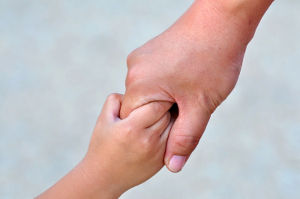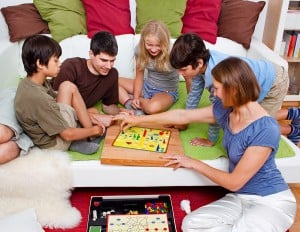 Is it possible to be a friend to your children? While you will always be a parent to your children, at some point in their lives, you hopefully will also be a friend. Sometimes you will be both. If you envision friendship and parenthood as a teeter-totter, sometimes the balance will tip towards friendship and other times, being a parent will far outweigh being a friend.
Is it possible to be a friend to your children? While you will always be a parent to your children, at some point in their lives, you hopefully will also be a friend. Sometimes you will be both. If you envision friendship and parenthood as a teeter-totter, sometimes the balance will tip towards friendship and other times, being a parent will far outweigh being a friend.
The goal is to know how to strike the right balance, switching from parent to friend and back as needed.
Once they enter school or go into a situation where another person is providing care for them, you’ll begin to lose some of the control and influence that you had over them when they were young.
Letting your children go and allowing them to grow as an independent being is one of the primary goals of parenthood. Recognizing that early allows you to set them up for success by teaching them about their Internal Guidance System (IGS) in age-appropriate ways.
Even so, there will be times where you find it is important to give more parental “weight” in the relationship balance. It is fine to offer parental guidance, especially in new and difficult situations. As a parent, it is crucial that you distinguish between wanting to control the situation (or your children’s lives) and guiding them to make decisions for themselves.
Sometimes the biggest lesson you can teach our children is to make their own choices and their own mistakes. We all need to learn to hear our IGS and to listen to its guidance. No one can do that without trying new things and making mistakes so we experience what not following our IGS feels like.
As a parent, you will always be there to support your kids and help guide them, even when they make mistakes, but they must learn to make decisions and trust in their own internal guidance. By teaching your children about their IGS at an early age, you give them the opportunity to listen and stretch while the consequences are smaller.
The best way for a parent to be a friend to a child is to demonstrate the qualities of what a good friend is. Show them compassion, understanding, acceptance. Listen to your children and let them express their feelings and opinions.
By modeling this behavior for your children, they will tend to gravitate towards others who are also good friends. Allow them to experience what it is like to be “friends” with someone who does not exhibit those characteristics. You can help guide them to discern that these are not really friends, and by allowing them to make this discovery rather than forbidding interactions, your children have developed a skill that will serve them for their entire lives.
Your children may not recognize what you are doing until they are adults, or even parents themselves. By allowing the teeter-totter to swing, but never fall out of balance, you will have been the best friend and parent that your children could ever have.
Your comments are welcome!
© 2014. Sharon Ballantine. All Rights Reserved.

